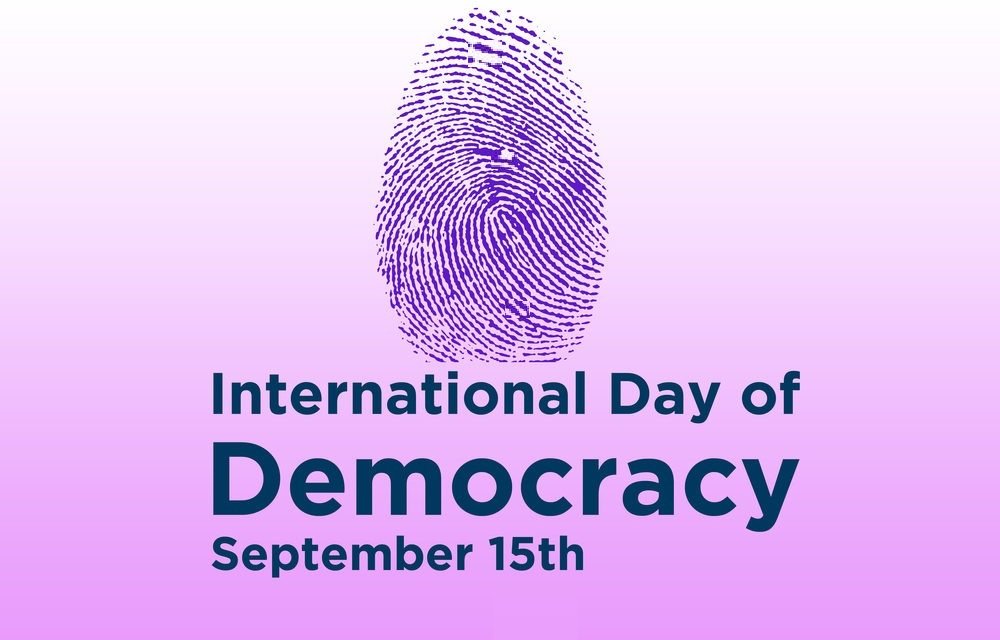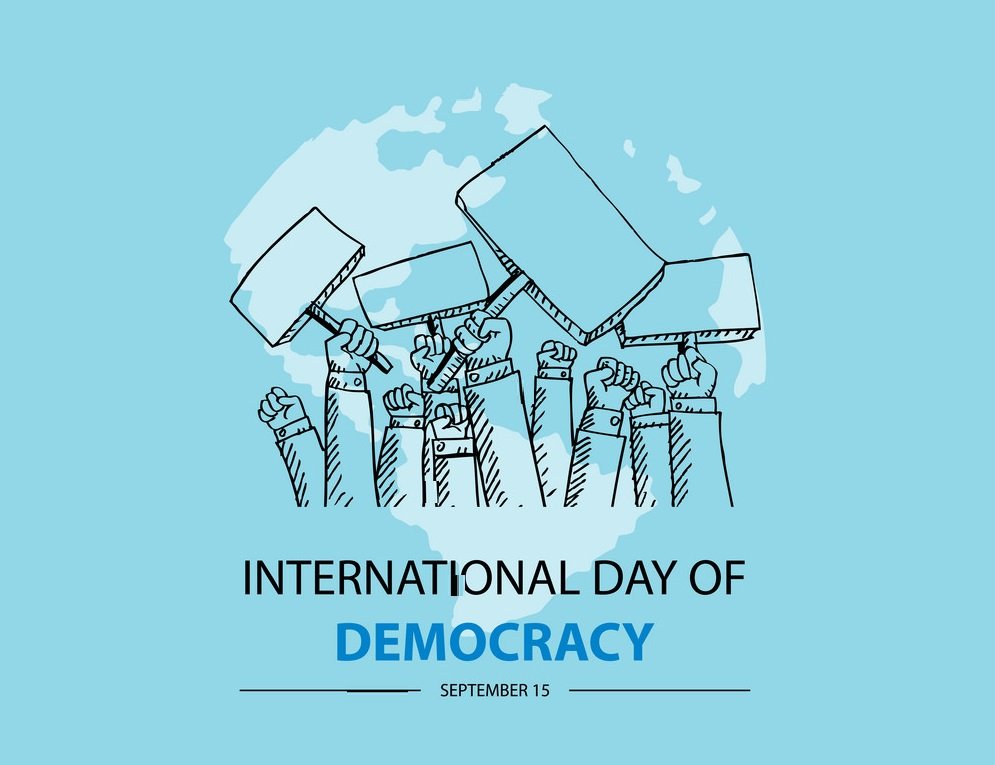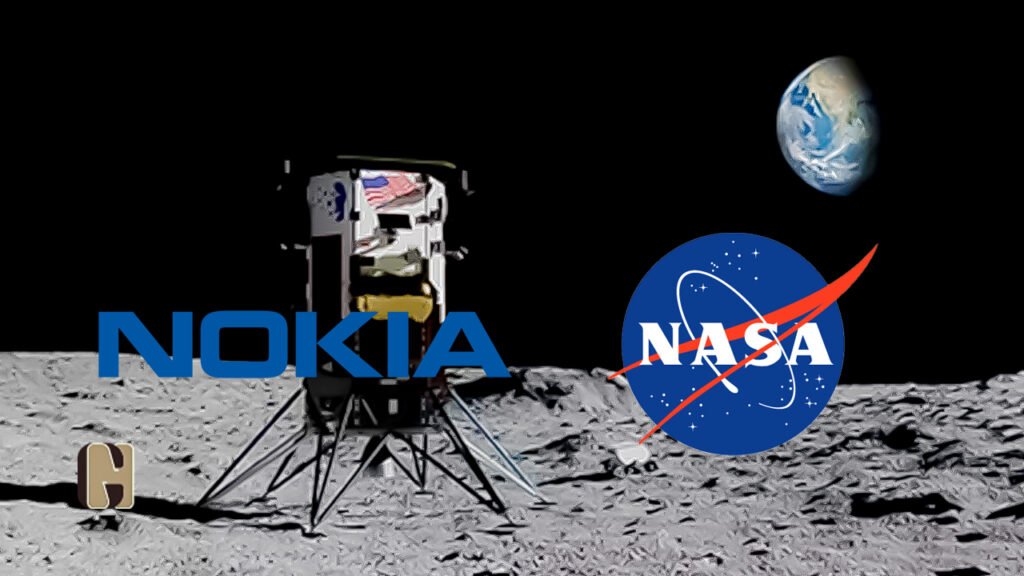News
International Day of Democracy: Celebrating Freedom, Inclusion, and Human Rights

The International Day of Democracy inspires action and reflection. This day emphasizes the importance of democratic values. Democracy faces challenges globally. Many countries experience declines in democratic processes. Media freedom, a cornerstone of democracy, encounters threats. News reports highlight these issues. The global state of democracy remains complex and unequal. Despite these challenges, hope persists. People unite to uphold democratic principles. The International Day of Democracy serves as a reminder. Everyone can contribute to strengthening democracy. Together, individuals can make a difference in the world.
International Day of Democracy
Introduction
Every year, on September 15th, the world observes the International Day of Democracy to promote and uphold the principles of democracy. This day serves as a reminder of the power of democratic systems in fostering freedom, protecting human rights, and ensuring that citizens have a voice in the decisions that affect their lives. Established by the United Nations in 2007, the International Day of Democracy aims to highlight the importance of participation, transparency, and equality in governance.
As the world grapples with modern challenges like the COVID-19 pandemic, political instability, and threats to human rights, the relevance of this day has never been more pronounced. This blog post will explore the significance of democracy, the challenges it faces, and how we can protect and strengthen it in a changing world.
What is Democracy?
At its core, democracy is a system of government in which power is vested in the hands of the people. It allows citizens to participate directly or indirectly in decision-making, typically through elected representatives. Democracy is built on several key principles, including freedom of speech, rule of law, human rights, accountability, and equality.
Democratic systems enable societies to thrive by ensuring that diverse voices are heard, power is checked, and human dignity is respected. In a democracy, citizens have the right to:
- Vote in free and fair elections.
- Express their opinions openly without fear of reprisal.
- Access accurate information and a transparent government.
- Hold elected officials accountable.
The Importance of International Day of Democracy
The International Day of Democracy serves as a global platform to reflect on the state of democracy worldwide. It is not just a celebration but also a call to action to protect and promote democratic values. With the rise of authoritarianism in some parts of the world, attacks on freedom of the press, and growing political divisions, this day urges individuals and governments alike to recommit to the foundational principles that safeguard freedom and justice.
1. Raising Awareness of Democratic Principles
Democracy is more than just casting votes—it is a constant effort to ensure equality, freedom, and fairness in governance. The International Day of Democracy highlights the importance of these principles by raising awareness among the public. It reminds us that we all have a role in sustaining democratic institutions by participating in civic life, staying informed, and holding our leaders accountable.
2. Promoting Political Participation
One of the core pillars of democracy is citizen participation. In recent years, voter apathy and political disengagement have emerged as significant challenges in many democracies. The International Day of Democracy emphasizes the need for active political participation, encouraging people to vote, run for office, and engage in political discourse. The more people participate, the stronger and more inclusive democracy becomes.
3. Defending Human Rights
Human rights are at the heart of any democratic society. They ensure that every individual is treated with dignity and has the freedom to pursue their own path in life. This day draws attention to the importance of protecting civil liberties, such as freedom of expression, the right to protest, and freedom of the press. Around the world, these rights are under threat, with crackdowns on journalists, activists, and minority groups. On International Day of Democracy, organizations and governments are encouraged to reaffirm their commitment to upholding human rights for all citizens.

Challenges to Democracy in the Modern World
While democracy is a cornerstone of freedom and human dignity, it faces numerous challenges in the 21st century. Some of these challenges include:
1. Rise of Authoritarianism
In recent years, we have seen a worrying trend of governments moving away from democratic values toward authoritarianism. Authoritarian regimes suppress free speech, control the media, and limit civil liberties, creating an environment of fear and oppression. This trend threatens the global democratic order and undermines the progress made in expanding human rights and freedoms.
2. Disinformation and Misinformation
The rise of social media and digital platforms has made information more accessible than ever before, but it has also given rise to disinformation and misinformation. These false narratives can sway public opinion, undermine trust in democratic institutions, and even influence elections. Ensuring that citizens have access to accurate information is critical for a healthy democracy.
3. Voter Apathy and Political Polarization
In many countries, political divisions are deepening, and this polarization has led to voter apathy, where citizens feel disengaged or disillusioned with the political process. A healthy democracy depends on active participation from its citizens. Bridging these divides and encouraging greater voter turnout are essential to ensuring that democracy remains representative and fair.
4. COVID-19 and Restrictions on Freedoms
The COVID-19 pandemic has further complicated the state of democracy. While necessary health measures have been implemented worldwide, some governments have used the crisis to impose restrictions that extend beyond public health concerns, limiting civil liberties, freedom of movement, and privacy. The International Day of Democracy serves as a reminder that even in times of crisis, democratic principles should not be compromised.
Challenges Faced by Media Freedom
Media freedom faces significant challenges worldwide. Governments employ subtle mechanisms to curb press freedom. These tactics include economic pressure and non-physical harassment. Democratic governments sometimes use these methods to influence media content. Transparency in media ownership becomes crucial. Public awareness campaigns can help safeguard media freedom. International watchdog organizations play a vital role in monitoring these trends.
Argentina illustrates how democratic governments pressure journalists. Economic pressure and harassment erode media freedom. This case study highlights the need for vigilance. Journalists require support to continue their work without fear.
Governments moving from free to illiberal democracies curb media freedom. These actions help retain power. Subtle mechanisms often go unnoticed until they escalate. Addressing these issues early can prevent further decline.
Developing countries face unique challenges. Smaller publications struggle due to limited financial support. Economic pressures impact media outlets significantly. Collaboration with NGOs can provide much-needed assistance.
How to Strengthen Democracy: What Can We Do?
Democracy is not a given; it is something that must be nurtured, protected, and actively practiced. On this International Day of Democracy, we can take several actions to strengthen and preserve democratic values in our societies.
1. Engage in Civic Participation
One of the most effective ways to support democracy is through active civic participation. This means voting in elections, volunteering in community organizations, joining peaceful protests, or even running for office. Democracy thrives when citizens take an active role in shaping their communities and countries.
2. Educate Yourself and Others
Democracy requires an informed electorate. Taking the time to understand political processes, human rights, and government policies helps you make educated decisions. Additionally, sharing this knowledge with others, particularly younger generations, helps build a more informed and engaged citizenry.
3. Stand Up for Human Rights
Defending human rights is central to maintaining a functioning democracy. Whether it’s advocating for freedom of the press, gender equality, or the rights of marginalized communities, we can all contribute to creating a more just society. International organizations, local NGOs, and individuals can work together to defend these rights both locally and globally.
4. Support Independent Journalism
A free and independent press is crucial to a functioning democracy. Journalists play a vital role in holding power to account, uncovering corruption, and providing citizens with the information they need to make informed decisions. Supporting independent media organizations ensures that the public can continue to access unbiased, fact-based news.
Conclusion
The International Day of Democracy is more than just a commemoration; it is a reminder of the vital importance of democratic values in promoting freedom, human rights, and justice. In a time of increasing challenges, from political polarization to the rise of authoritarianism, protecting democracy is more critical than ever.
As we move forward, let us remember that democracy thrives through participation, accountability, and a shared commitment to uphold the principles of equality and human rights. By staying engaged, informed, and proactive, we can ensure that democracy remains a guiding force for future generations.
News
Fyre Festival II Tickets Selling for Up to $1.1 Million
Fyre Festival 2 is officially happening, with tickets now on sale, ranging from $1,400 to a staggering $1.1 million. The sequel to the infamous 2017 festival disaster is set to take place on Isla Mujeres, Mexico, and promises an exclusive three-day experience filled with music, art, cuisine, and adventure.
Who’s Behind It?
Billy McFarland, the convicted fraudster behind the original Fyre Festival, is leading the event once again. However, this time, the festival is being managed by Lostnights, a seasoned live event production company. Despite McFarland’s assurances that “Fyre 2 will be a historic experience”, skepticism remains high.
What’s Included in the $1.1M Package?
The highest-tier ticket package, dubbed “Prometheus: God of Fyre”, includes:
- Luxury yacht accommodations
- Exclusive beachside performances
- VIP access to events and excursions
- Private dining experiences
No Lineup Announced Yet
As of now, no official artist lineup has been revealed. However, McFarland has hinted that it will feature electronic, hip-hop, pop, and rock acts.
Is It Worth the Risk?
Many remain skeptical about whether Fyre Festival 2 will actually happen or if it will be another high-profile failure. Tickets are available on the official Fyre Festival website, but given the history of false promises, potential attendees may want to proceed with caution.
News
Nokia Deploys First 4G Network on the Moon
Nokia has made history by deploying the first 4G/LTE cellular network on the Moon. This groundbreaking achievement is part of NASA’s IM-2 mission and was made possible through a partnership with Intuitive Machines, a private space exploration company.
The network, known as the Lunar Surface Communication System (LSCS), was integrated into Intuitive Machines’ Athena lander and successfully launched aboard a Nova-C class lunar lander named Odysseus. This technology will support future exploration by providing high-speed connectivity between lunar vehicles, robotic systems, and Earth.
Why Does the Moon Need 4G?
Nokia’s 4G network is designed to improve connectivity for future crewed and uncrewed missions. The network will:
- Enable real-time communication between landers, rovers, and astronauts.
- Support high-definition video streaming, telemetry data transmission, and command-and-control functions.
- Help with resource mapping, particularly in the Moon’s south pole region, where scientists search for water ice deposits.
How Does It Work?
The LSCS system is housed within Athena’s carbon-composite panels and is built to withstand the harsh conditions of space travel. It connects to two lunar mobility vehicles:
- Micro-Nova Hopper: A mini-lander designed to explore permanently shadowed lunar regions.
- MAPP Rover (Mobile Autonomous Prospecting Platform): A robotic rover developed by Lunar Outpost to traverse the lunar surface and carry out exploration tasks.
Once operational, the rover will deploy from Athena, extend its antennas, and connect to Nokia’s 4G network, ensuring a seamless communication link back to Earth.
Future of Lunar Communications
This project is a key step toward building a permanent lunar infrastructure. Nokia and Intuitive Machines hope to expand this technology to Mars, allowing cellular networks to play a vital role in deep-space exploration.
Steve Altemus, CEO of Intuitive Machines, described the initiative as a “transformative moment in the commercialization of space”, emphasizing its importance in NASA’s Artemis program, which aims to establish a sustainable human presence on the Moon.
This deployment is expected to revolutionize space exploration, paving the way for human settlements, resource extraction, and future Moon-based industries.
News
Instagram May Be Launching a Separate Reels App

Instagram is reportedly exploring the idea of launching a standalone app for Reels, aiming to compete more aggressively with TikTok. This move could separate short-form video content from the main Instagram app, providing a dedicated space for Reels content, similar to how Facebook once separated Messenger from its main app.
Why Instagram Might Do This
A separate Reels app could give Instagram a stronger presence in the short-video market. Many users currently prefer TikTok for its algorithm-driven discovery and engagement.
Having a standalone app may allow Instagram to enhance user experience, making Reels more appealing with features that could rival TikTok.
Currently, Reels can get buried in Instagram’s interface. A dedicated app might provide better reach and discoverability for creators and brands.
Potential Challenges
- User Adoption: Instagram previously launched Threads as a separate messaging app, but it struggled to gain traction. A Reels app might face the same issue.
- Impact on Instagram’s Engagement: If users move to a new app for Reels, this could lower engagement on the main Instagram app.
- Content Strategy for Brands: Businesses and influencers will need to decide whether to focus on Instagram Reels or shift efforts to the new app if it launches.
What This Means for Users and Creators
If Instagram moves forward with a separate Reels app, early adopters could benefit from increased exposure. However, if the app fails to gain popularity, it could follow the fate of other short-lived experiments. For now, Instagram has not officially confirmed the launch, but reports suggest testing may already be underway.
Would you be interested in using a standalone Reels app, or do you prefer having everything within Instagram?
-

 News1 year ago
News1 year agoKolkata Doctor Case: Tragic Story of Dr. Moumita Debnath
-

 Health And Fitness1 year ago
Health And Fitness1 year agoPepsi Zero Sugar vs Diet Pepsi: Which Is Healthier?
-

 Health And Fitness1 year ago
Health And Fitness1 year agoHow to Choose a Rehab for Lasting Recovery
-

 News1 year ago
News1 year agoLondon King Opens Up About Her Relationship with Rob Schneider
-

 Tech Innovation1 year ago
Tech Innovation1 year agoTop Machine Learning and Deep Learning Trends for 2024
-

 News1 year ago
News1 year agoTyra Banks Biography: Age, Husband, Net Worth
-

 Health And Fitness1 year ago
Health And Fitness1 year agoCoca-Cola Zero Sugar vs Diet Coke: Which One to Choose In 2025?
-

 Tech Innovation1 year ago
Tech Innovation1 year agoHuawei Mate XT: A Detailed Review of the World’s First Tri-Fold Smartphone


